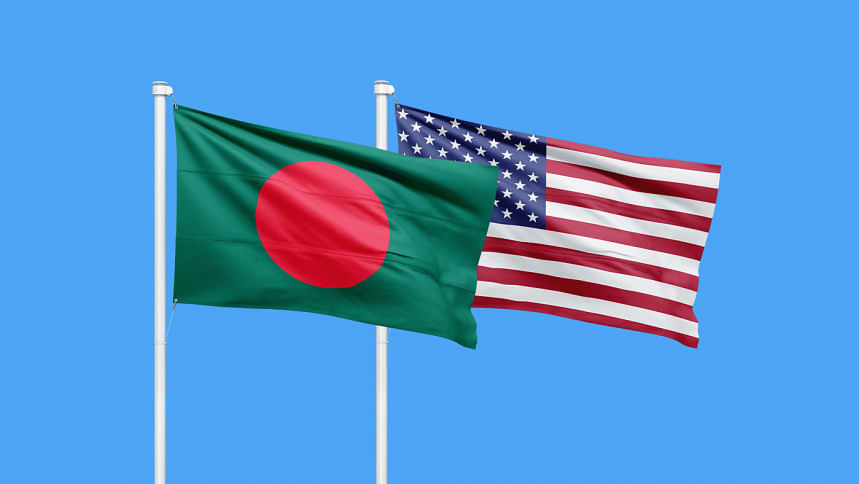Us-bangladesh relationship: What’s in the feast?

On the surface, the 8th US-Bangladesh Partnership Dialogue was a success.
Victoria Nuland, the US Undersecretary for Political Affairs, who led the American delegate, termed it an "appetiser for the feast" that is to come, while Foreign Secretary Masun Bin Momen viewed the dialogue as "the beginning of a rejuvenated robust engagement with our US friends".
But foreign policy experts found the dialogue, the first under the Biden administration, not as positively sanguine as the US did not give any clear hint on whether the sanctions on the Rapid Action Battalion and its top officials would be lifted anytime soon nor would the Generalised System of Preferences would be reinstated.
Democracy, human rights and governance are at the centre of Biden's foreign policy, crystallised in the US's stance on Russia's invasion of Ukraine.
"Bangladesh also shares the same values, but it needs to act diligently on these fronts," said Shahab Enam Khan, an international relations professor at the Jahangirnagar University.
For instance, Bangladesh's abstention from the UN General Assembly voting on Ukraine was construed by the US as taking the side of Russia, he said.
The world is becoming more polarised, especially over the Russia-Ukraine war, with the West and its allies taking a side and Russia and its allies the other, Khan said.
"Bangladesh is trying to strike a balance, but the US wants to take Bangladesh to its side," he added.
The US wants Bangladesh to be its partner in the Indo-Pacific Strategy (IPS).
The IPS speaks of a free, open and international rules-based system in the Indian and Pacific Oceans and cooperation among the regional countries for development.
Analysts see it is aimed at countering China, from where Bangladesh procures most of its defence equipment.
Asked how Dhaka would strike a balance between the US and China, Khan said: "Dhaka needs to engage with both the sides -- both politically and diplomatically. The challenge is how we do it. We need a lot of capacity building for communication and negotiation."
Dhaka has made clear that it will be with the economic component of the IPS, but not join any military alliance.
While Washington said it would soon release a policy on the economic aspect of the IPS, it also expressed its eagerness for security cooperation.
It has handed a draft agreement of the General Security of Military Information Agreement (GSOMIA) to Dhaka to make sure that the classified military information is protected.
The US has been seeking to sign two defence deals -- GSOMIA and Acquisition Cross-Servicing Agreement -- as Bangladesh sought to buy advanced equipment from the US as part of its goal to modernise the military by 2030.
There has been no progress so far, but now Bangladesh is actively considering signing the two deals, diplomatic sources said.
Bangladesh has defence agreements with India, China, Turkey and some other countries and there is nothing wrong in signing a deal for improving its military strength, which is important for protecting its land and maritime boundary, said Shamsher Mobin Chowdhury, a former foreign secretary.
Joint naval exercises with various countries in the Indian Ocean, including those of India, Japan, the US, the UK, Australia, took place.
"These are meant to improve the naval capacity of the country. So, signing a defence agreement does not mean joining a military alliance."
The US is the single largest export market for Bangladesh and maintaining a strong relationship is of the essence, Chowdhury said.
"It is not necessary that you will agree on everything, but the engagement is a must for better understanding of each other," he added.

 For all latest news, follow The Daily Star's Google News channel.
For all latest news, follow The Daily Star's Google News channel. 



Comments